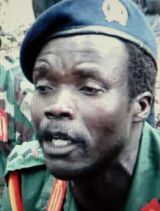Uganda rebels said ready to face justice, not ICC
Dec 20, 2006 (KAMPALA) — Ugandan rebel leader Joseph Kony is willing to face justice at home as an alternative to the International Criminal Court, officials said on Wednesday, in a move that may boost efforts to end a two-decade conflict.
 Government officials back from visiting Kony in his hideout also said they had succeeded in opening up a direct phone line between Kony and President Yoweri Museveni — a development they hoped would speed up talks in south Sudan.
Government officials back from visiting Kony in his hideout also said they had succeeded in opening up a direct phone line between Kony and President Yoweri Museveni — a development they hoped would speed up talks in south Sudan.
Peace talks between the two sides resumed last week, nearly a month after the rebel Lord’s Resistance Army (LRA) walked out, accusing the army of violating an August truce by attacking their fighters in southern Sudan.
But the LRA’s top commanders — who remain at large in jungle hideouts on the Sudan/Congo border — have said repeatedly they will never sign a final peace deal until the Hague-based ICC drops its indictments against them.
Walter Ochora, government district commissioner for Gulu which was at the epicentre of Uganda’s 20-year war, told reporters in Kampala that Kony had said he would be willing to face justice for war crimes in Uganda.
“We are ready for accountability in Uganda where we can put our case and the government put their case,” Ochora quoted Kony as saying. “We shall talk freely and disclose all.”
LRA officials were not immediately available for comment.
TRADITIONAL JUSTICE
Local politicians in the war-torn north have advocated traditional justice for the LRA leaders, who are accused of killing civilians, rape, torture, mutilation and abducting children to swell their ranks.
“According to Kony, the ICC has been prejudiced and has not given him a hearing because he is not in power,” Ochora said.
But a government-appointed lawyer who joined the delegation to consult Kony on the ICC indictments said he noticed a shift in tone, with the LRA leaders relaxing earlier demands that the indictments be scrapped.
“This time round I could see they had come to terms with the fact that they could not wish the ICC away,” lawyer Owiny-Dollo said. “We have moved the issue sideways.”
The ICC has repeatedly refused to withdraw the charges against Kony and his commanders in what is seen as a test case for the fledgling human rights court.
On Saturday, the LRA and the government renewed an existing truce until the end of February, and have since agreed on a draft proposal for the next phase of the peace deal.
“There is not yet a comprehensive assessment of the draft by the two sides,” LRA spokesman Obonyo Olweny told Reuters in south Sudan’s capital, Juba, adding that it would not be signed before Christmas.
The draft document deals with reconstruction of the north after a war that has killed tens of thousands of people and displaced nearly 2 million.
But analysts fear the delegates representing the LRA in talks — many of them LRA sympathisers from the Ugandan diaspora in Britain, the United States and Kenya — are pushing a political agenda in which the commanders have little interest.
LRA deputy commander Vincent Otti talked with Museveni over the phone for the first time this month, and Ochora said a direct line with the president would speed up talks because LRA representatives now feared being sidelined.
“The direct talk of Museveni with the LRA caused a lot of panic in the LRA delegation … did they need to be in Juba, really?” he added.
(Reuters)
